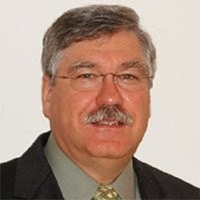
A development plan is still necessary in the mid-late career stage, yet it can be adjusted to meet both the employee’s and the company’s best interest.
This stage should be enjoyable and rewarding for employees who have flourished and grown during their early and mid-career stages. They are now seen as experts in the field, as they have proven themselves both in terms of skills and reliability. The strategic career development focus for those employees can be on succession planning, i.e. the employee becomes a mentor or coach for entry-level peers, transferring their accumulated expertise while continuously refreshing their skills, and contributing to developing existing workers or new hires.
Mid-late career employees generally have less pressure to outperform compared to earlier years, and those looking for continuous development and self-improvement could be rewarded for their years of loyalty to the company. To keep them engaged, their career development could incorporate learning new skills or trainings which may have been postponed previously due to more pressing demands.

I believe a development plan is necessary at every stage of career and should feed into overall career goals. While having a development plan is important, it is equally important that it is flexible and dynamic as the workplace strategies and business conditions change. We have heard and read about different career stages: exploration, establishment, mid, late, and decline to name a few. There is always a growth opportunity within each of these stages, even during the late and decline phases.
A development plan entails acquiring the skillset and identifying the growth opportunities while building a path forward by setting reasonable goals that bring value to both the employee and the employer. There are several free online tools that are available to develop an effective career and development plan. Creating SMART goals early in the career allows for acquiring the requisite skills and experiences to succeed in the mid or late stages.
Self-awareness becomes important in the mid-late stages with significant goals already met and the feeling of “what’s next?” beginning to set in. Utilizing tools like coaching, networking, SWOT analysis, MBTI assessment, etc. to re-assess achievements and goals helps with creating a robust plan. One must assess at frequent intervals the value they bring to the organization they work for and accordingly tweak personal career path/ plan as this would contribute to a successful and satisfying career.

A development plan is important at any stage of one’s career, including late-stage careers. It helps identify what is important to you. This may be different now than what it was a few years ago. It helps focus your job search on areas of expertise, skills, interest, and ability. It gives direction and a plan of action. It can also identify areas where you could develop new skills through training, especially if a shift in career is desired. While this will focus your efforts, sometimes your network can present an unexpected or unique opportunity, so do keep an open mind.

If we want to (1) continue gainfully with present employment; (2) be prepared for a layoff in our mid to late career; or (3) if we want to remain active in science after retirement, the answer to this question is a resounding “yes!” Our development plan should include (1) adding citations to update our resume; (2) subscriptions to specific ACS journals in our focused area of expertise; (3) activity in the scientific community, e.g., attending and presenting papers at ACS meetings; (4) organizing an ACS symposium if possible; and (5) staying active in our local ACS Section.
It is really true that as we progress through our careers, we become experts in specific areas, and companies (including the one where we may be gainfully employed), academia and the government are very much in need of “expert consultants.” Networking will connect us. Robert Browning was thinking of us scientists when he penned “Come grow old with me, the best is yet to be.”
This article has been edited for length and clarity. The opinions expressed in this article are the author's own and do not necessarily reflect the view of their employer or the American Chemical Society.
ACS Career Consultants are experts and leaders working in the field of chemistry who have volunteered to support other ACS members’ career development through one-on-one career counselling. They can stimulate your thinking, ask important career planning questions to help clarify goals, provide encouragement, teach strategies for making meaningful career decisions, and aid you in your job search. Connect with an ACS Career Consultant today!
Copyright 2020 American Chemical Society (All Rights Reserved)








